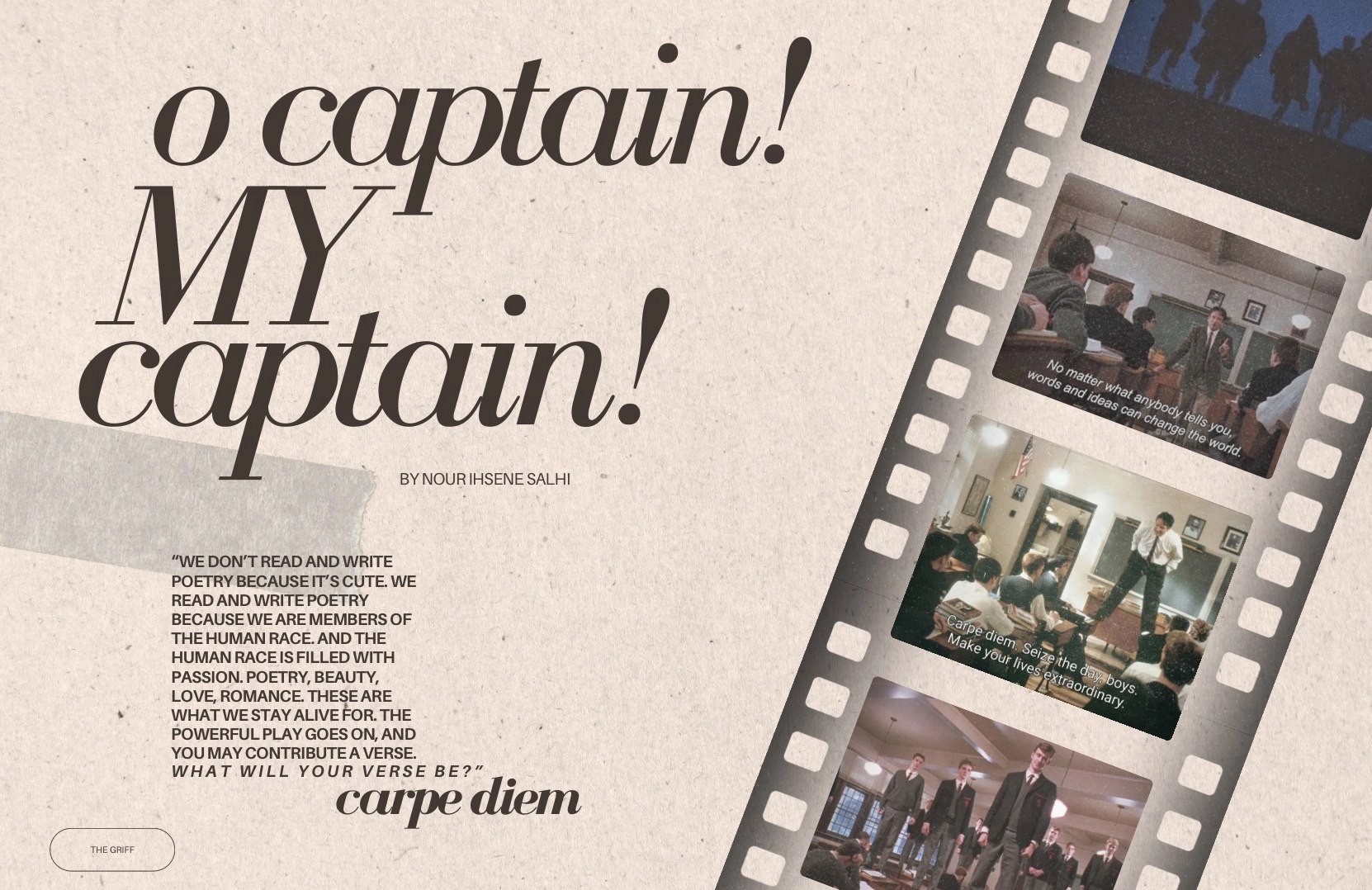It took me a long time to watch the iconic movie Dead Poets Society. When I did watch it, it was a spontaneous and random decision that altered my life from the moment I hit play. My reasons for wanting to watch it were simple. It was fall, and I loved the idea of dark academia accompanied by the dying leaves outside. Despite its acclaim, I had no clue what the movie was about. So my sister and I gathered our snacks, queued up the film, turned off the lights, and let the curtains rise.
My sister didn’t even make it to Keating’s first speech before passing out. I, however, didn’t even notice her snoring as I became entranced. “Gather ye rosebuds while ye may,” Keating said and further expressed as “carpe diem.” It was then that I knew this movie was different. Its premise remained simple, yet its impact was everything but. A film about teenage naivety and youthful stubbornness became the reason for many tears that night (if you know the ending, you get it), but it also became the reason I picked up a pen again. For the first time since the pandemic had started, I picked up what used to be my favourite tool and did what used to be my favourite thing – write.
I wrote a poem, and it was arguably the worst poem to ever exist, but it was something. And from that moment on, I kept going. I let myself fall back in love with the things I loved to do. That sounds so trivial and obvious, but for a long time, life had been about succeeding as quickly as possible. Get the best grades, have the best job, and make the most money. In all of that noise, I forgot to just exist and have the courage to try new things, even when I wasn’t great at them, or to find happiness in the small moments.
All of that started with Keating as he urged his class to “seize the day” and “make [their] lives extraordinary.” For a moment, all I could think about was just how ordinary my life was, but as I let myself see life differently, I realized that “extraordinary” was to be defined by me. So I continued to write my subpar poems (they’re getting better!), my thoughts, and my stories. They all deserved the ink from my pen simply because I thought it. My continued writing played a large part in me truly considering a change in path. While my original journey led me through different sciences and was meant to end with medicine, I was having doubts. A complete change in path was daunting, especially when I wasn’t sure what this new road would be. So, as I battled the various anxieties that come with huge life decisions, thanks to Keating, I found comfort in my writing, which ultimately led me to where I am now: journalism.
Making the leap to a different program, specifically one that is often considered a dying craft, was nothing short of terrifying. Especially when my original path would’ve led me to something more “extraordinary” in societal terms. Many students outside of STEM programs can relate to a feeling of inferiority. It is as if seeing life through a lens other than one of calculations and scientific theories meant our contribution to society are subpar. But Keating saw it differently; he knew that “words and ideas can change the world.” When I had finally decided that this change was worth it, I put a reminder from Keating on my screen for every time I would ever doubt myself: “We don’t read and write poetry because it’s cute. We read and write poetry because we are members of the human race. And the human race is filled with passion. Poetry, beauty, love, romance. These are what we stay alive for. The powerful play goes on, and you may contribute a verse. What will your verse be?” And right beside that reminder are the words “carpe diem.”
I often think about what my verse will be or where my ever-changing definition of extraordinary will take me. But, I know that whatever opportunities come my way, I now have the courage to seize them. And it all started when I hit play.
Cover image by Nour Ihsene Salhi.





that is the only movie you watched with your sister?
I was a college student studying to be an English teacher when Dead Poets Society first came out. For my colleagues and I, it further ignited our passion to use our classrooms to challenge students and change the world. I love your take on the movie! It is a life-changing experience that challenges all viewers to “seize the day” and live life to the fullest. I need to go watch it again now! Thanks for sharing your story!
I am a retired English teacher and showed DPS to my students while studying Thoreau. They loved it and were inspired by it. Loved your reflections on the move.